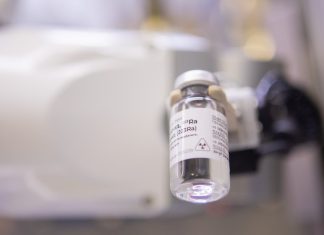The All-Russian Union of Patients (VSP) appealed to Mikhail Mishustin, Russia’s Prime Minister, with a call to extend the list of patients entitled to subsidized medicines to include those with severe high cholesterol who have a risk of another cardiovascular event. This is reported by TASS with reference to the VSP’s appeal.
On September 13, the Ministry of Health of the Russian Federation posted a document on the federal draft regulation portal. The draft entitles patients with chronic heart failure to receive modern medicines on an outpatient basis. According to the document, they will be available to patients who receive follow-up care, have suffered acute cerebral circulation disorder or myocardial infarction, as well as those who have undergone coronary artery bypass surgery, coronary artery angioplasty with stenting and cardiac catheter-based ablation within two years from the date of diagnosis or surgical intervention.
“The VSP believes it is critical to include life-saving therapy for patients with severe hypercholesterolemia who are at risk of recurrent cardiovascular events in the order of the Ministry of Health of Russia,” the publication quotes the Union’s appeal.
According to VSP experts, about 5,500 Russian patients need a priority supply of such therapy.
“These are mostly patients of employable age, and the availability of a narrow group of modern medicines is the only therapeutic option for them to save their lives, avoid the recurrence of cardiovascular events, prevent disability or repeated high-cost revascularization surgery,” the organization noted.
They also recalled that cardiovascular diseases are the main cause of deaths in the Russian Federation, accounting for about 45% in overall mortality. A total of up to 10 million Russians suffer from chronic cardiovascular diseases, according to the All-Russian Union of Patients.
The Union of Patients called on Mishustin to provide modern drugs under the federal project “Fight against Cardiovascular Diseases” to all groups of patients with chronic diseases of the circulatory system who need the medicines.
“Such a comprehensive approach will contribute to the achievement of national goals to reduce mortality from cardiovascular diseases and increase overall life expectancy,” the VSP stressed.




